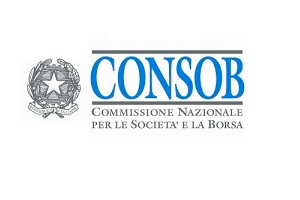Who are the Commissione Nazionale per le Società e la Borsa?
The Commissione Nazionale per le Società e la Borsa (CONSOB) – or the National Commission for Companies and the Stock Exchange to give its English translation – is the governmental body that is responsible for regulating the Italian stock exchange, the Borsa Italiana, as well as the Italian securities market.
CONSOB was established in 1974 after various pieces of legislation were merged, divulging some powers away from the Italian Ministry of Treasury to this newly created body.
Originally, the role of CONSOB was to exclusively oversee the regulation of the Italian securities market, but in the past 40 years, it has also taken responsibility for protecting investors and their public savings, for independently auditing securities brokers, and for investigating insider trading.
The organisation has also introduced a short selling ban 2020, with the Italian economy struggling in the wake of the coronavirus pandemic. As such, traders and investors must declare their net short positions to CONSOB when they have reached 0.1% of the share capital available. This amendment of the law is in effect from March to December 2020, with traders having to notify the authorities by 21st December.
Regulatory areas and powers
Today, CONSOB has responsibility for a number of areas, all of which feed into protecting the integrity of the Italian securities market and the stock exchange.
It regulates and monitors the activities of investment providers and their associate companies, ensuring that they continue to meet the standards set out in the myriad legislation that CONSOB is bound by.
The organisation also authorises financial services providers to operate within the Italian market, and will investigate the behaviour of any company that it believes is operating in a non-transparent way that prevents the delivery of a fair market. CONSOB is also responsible for checking any information provided by entities that ‘sell’ investments and making sure that they remain fit for purpose.
While not solely responsible for the administration of penalties, CONSOB does have a range of regulatory measures available when it comes to punishing any operator it deems to have committed procedural violations.
Any entities that wish to operate in the Italian market must also pay an annual fee to CONSOB, which acts as confirmation of their registration for the scheme.
How to check if a broker is regulated by the Commissione Nazionale per le Società e la Borsa
There is plenty to learn about the CONSOB by heading to the ‘participants and markets’ page of its website at http://www.consob.it/web/consob-and-its-activities/participants-and-markets.
This features a register of all of the companies listed as being under the jurisdiction of CONSOB, as well as all of the trading brokers, investment firms and financial service providers that fall under its remit.
On the same page, there is more information about the markets that CONSOB regulates and monitors, as well as other useful information about how the body is upholding the highest standards and placing guilty parties on its blacklist.
Making a complaint
The page at http://www.consob.it/web/consob-and-its-activities/watch-for-scams provides useful information about what someone should do if they think they have been scammed by a broker or an investment firm – there are various links that will help the customer ascertain whether the company is authorised or not to operate in Italy.
The CONSOB website also features a direct link that can be used to make a formal complaint against an operator. The corresponding webpage is in Italian (though there is an English translation button), and this shows a postal address, an email address, and an online link to where a complaint can be made.
